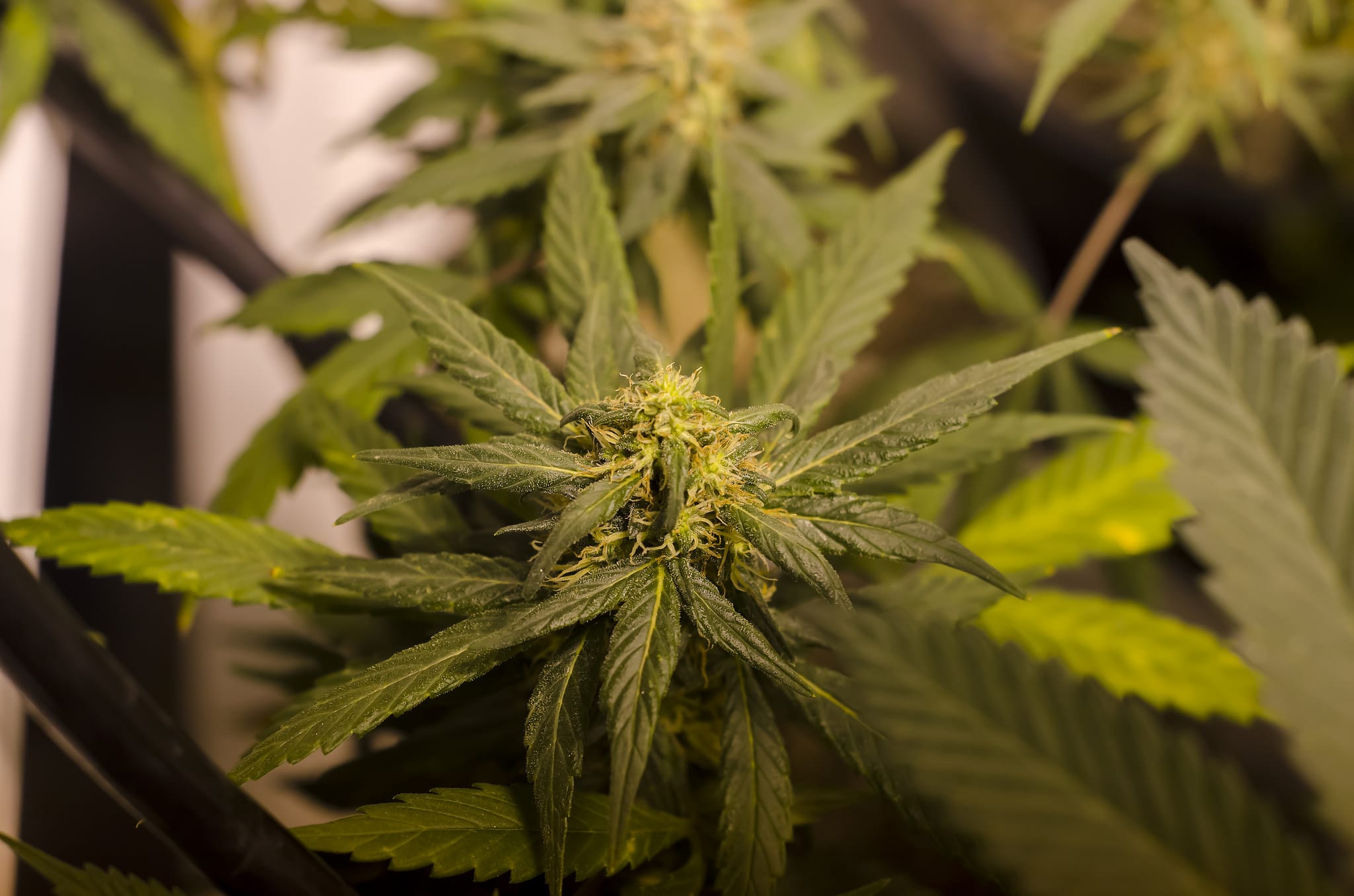Under current marijuana laws in Virginia, you can face up to a $500 fine and 30 days in jail for a first-time, low-level possession charge. But legislation may soon change that. Virginia’s House of Delegates approved a marijuana decriminalization measure February 10, and the Senate passed its own, different measure the day after.
If the two chambers successfully negotiate a unified bill, it is likely that Governor Ralph Northam (D) will sign it into law, thus making Virginia the 27th state to decriminalize marijuana. Separate legislation has also advanced that may provide for record expungement.
The Senate bill decriminalizes possession of up to one ounce of marijuana, making it punishable by a $50 fine and no jail time. The House bill meanwhile decriminalizes up to a half ounce, which would be subject only to a $25 fine. Quantities above one ounce would be prosecuted as distribution offenses.
What would be the effect of decriminalization in Virginia? According to data reported by the Washington Post, marijuana arrests in the Commonwealth reached their all-time peak as recently as 2018. That year, 29,000 people were arrested—triple the number in 1999.
Marijuana accounted for 60 percent of all drug arrests in the state, and over half of those arrested were under age 24. “The vast majority of cases involved simple possession of marijuana,” noted the Post.
Worse still, data show that Black residents are disproportionately targeted by arrests: 46 percent of people arrested for a first-time possession offense between 2007-2016 were Black, although Black people make up only 20 percent of Virginia’s population.
So a decriminalization measure’s reduction of arrests in Virginia would likely be very significant.
But would it reduce or eliminate racial disparities in marijuana enforcement? Virginia’s decriminalization predecessors around the US suggest otherwise.
In New York City, Mayor Bill de Blasio (D) implemented new police guidelines in September 2018 to decriminalize small amounts of marijuana. The city did dramatically reduce overall arrests—from 17,000 in 2017 to 7,300 by November 2018.
However, Black and Latinx New Yorkers made up an overwhelming majority—89 percent—of those who continued being arrested for cannabis. “It’s naïve to think that an issue as old and complex as this can be unraveled and solved by the snap of anyone’s fingers,” said the mayor’s spokeswoman Olivia Lapeyrolerie. “It’ll be a challenge that this administration, the next administration and those who follow will have to constantly focus on—and we will continue to do so.”
De Blasio’s critics in the City Council pointed out that numerous exceptions in the decriminalization policy target people of color. Police can arrest people for marijuana if they are wanted for a crime, on parole or probation, or with a prior arrest for a violent crime. They also pointed out that police focus more attention and enforcement on Black and Brown neighborhoods.
In neighboring Connecticut, meanwhile, police have continued arresting Black people disproportionately for marijuana-law violations ever since the state decriminalized in 2011. A 2016 analysis by CTMirror showed that statewide, police were more than three times likelier to arrest Black people than whites. In nearly every town examined, the Black marijuana arrest rate was far higher than the proportion of Black residents.
Such failures are not limited to jurisdictions that have merely decriminalized. Similar racial disparities have persisted in states that have legalized, too. Marijuana arrests of Black people remained disproportionately high in Alaska after it legalized in 2014; Black remained four times more likely than whites to be arrested for marijuana after Washington, DC legalized the same year; and a 2016 report found that both Black and Latinx residents had disproportionately high marijuana arrest rates compared to whites in Colorado following legalization in 2012.
“Marijuana legalization dramatically reduces the number of people arrested for marijuana offenses; however, it does not end racially disparate policing,” said the Drug Policy Alliance in a 2018 review of legalization policies throughout the US. “Police practices must be reformed to fully remedy the unequal enforcement of marijuana laws. Police departments should adopt model policies that prohibit officers from engaging in racial profiling and educate them on the harms of discriminating based on race.”
If Virginia follows the lead of 26 other states in decriminalizing marijuana, this will indeed be significant progress. Tens of thousands of arrests will likely be prevented each year. But lawmakers and advocates would have to think of explicitly racial justice-focused approaches to prevent Black, Brown and other marginalized communities from continuing to be targeted.
Photo by Global Panorama via Flickr / Creative Commons 2.0.





Show Comments